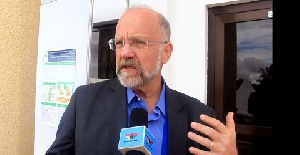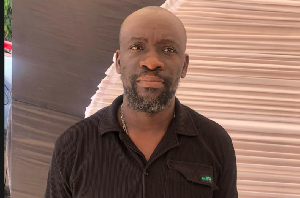Refugees can contribute significantly to development in Ghana if government pursues integration policies targeted at identifying and imploring their knowledge, expertise and labour, this is the posturing of Professor Finn Tarp of the United Nations University.
Speaking at a conference held jointly by the United Nations University World Institute for Development Economics Research (UNU-WIDER) and the African Research Universities Alliance (ARUA), Prof. Tarp explained that regardless of the fact that different circumstances surround the movement of refugees, these persons if implored, can help the country progress.
“In relation to people who have fled from war and other circumstances, you can point to positive impacts because they may contribute a specific addition to the labor force they can if assume and pursue proper integration policies; they may add to the labor force, they may add new information, they may add new knowledge that the receiving country does not have and once you start adding all these things together then it can in the long run become an asset of value for the country” he said.
Prof. Tarp noted that it is the responsibility of every country to accept and offer assistance to migrants who have had to flee their various countries as a result of war and or forced migration.
“Every receiving country has a responsibility to help refugees. We have a shared responsibility to receive refugees and help them because they are in desperate conditions”, he stated.
Tarp maintained that rather than focusing on the short term cost involved in accepting refugees and caring for them, government should focus on the long term benefits the country stands to gain including learning new information and getting diversified skilled labor which will boost economic growth.
“It’s not going to happen overnight because of course there are costs associated with receiving people at short notice, they have to be fed, they have to have supplies, they have to start eventually getting into school and all that is associated with cost but don’t necessarily think only of the short run cost. Sometimes short run costs can be investments that can actually pay back in just a little bit longer time perspective,” he said.
The conference was organized to discuss among other things, migration and rural-urban development, migration policy and governance, and environmental and natural resources.
Other topics tackled at the conference include conflict, forced migration and international policy, determinants of migration, migration within Africa: defining the governance challenge; remittances and family left behind; immigration integration, transnationalism and societal relations among sub-Saharan African immigrants, as well as understanding the root causes of migration.
General News of Friday, 6 October 2017
Source: www.ghanaweb.com













